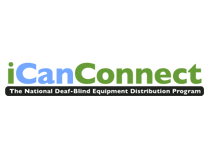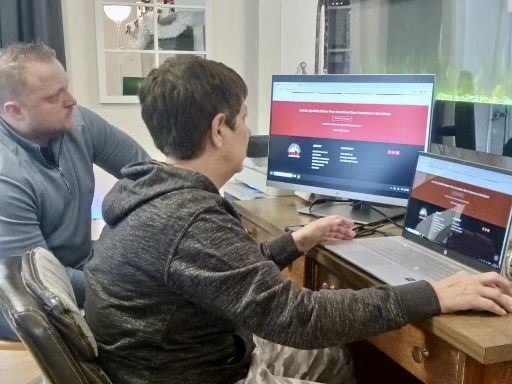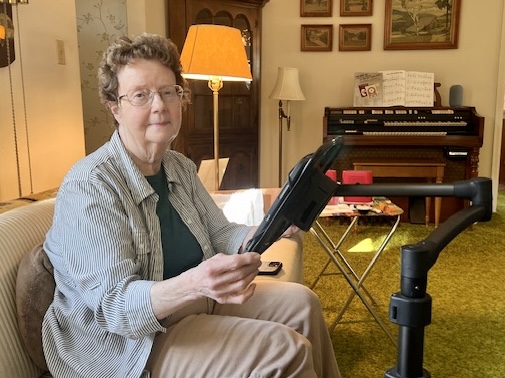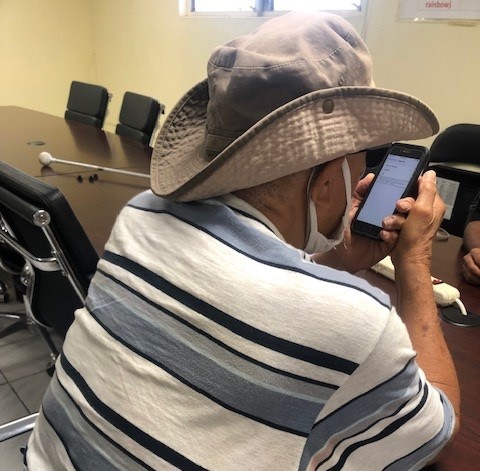Lincoln, NE – Many thousands of Americans who have combined loss of hearing and vision may soon connect with family, friends, and community thanks to the National Deaf-Blind Equipment Distribution Program. Mandated by the 21st Century Communications and Video Accessibility Act (CVAA), the Federal Communications Commission (FCC) established this new program to provide support for the local distribution of a wide array of accessible communications technology.
The FCC is also funding a national outreach campaign to educate the public about this new program. The iCanConnect campaign will be conducted jointly by Perkins, Watertown, MA, and Helen Keller National Center in New York City, NY.
The iCanConnect initiative seeks to educate people about the availability of communications technology – from screen enlargement software and video phones, to off-the shelf products that are accessible or adaptable. The Nebraska Commission for the Deaf and Hard of Hearing has been certified by the FCC to distribute equipment to citizens who are low-income and suffer from combined hearing and vision loss. Through the website www.iCanConnect.org/nebraska, individuals, their family members or care givers will find information about the program including: who qualifies, what equipment is available, how it is being distributed and installed and how to receive training. This information is also available to people who call 1-800-545-6244.
The National Deaf-Blind Equipment Distribution Program was created to ensure people who are blind and deaf-blind can remain safe and healthy, hold a job, manage a household, and contribute to the economy and the community.
“With the right technology, people with disabilities can link to information and ideas, be productive, and move ahead,” said Steven Rothstein, President of Perkins. “Perkins’ most famous student, Helen Keller, exemplified the potential of a person who is deaf-blind. We are proud to have a role in this transformational program.”
The CVAA, championed in Washington, DC, by Congressman Edward J. Markey of Massachusetts and Senator Mark Pryor of Arkansas, acknowledges that advances in technology can revolutionize lives. Nearly one million people in the United States have some combination of vision and hearing loss. Persons with combined loss of vision and hearing as defined by the Helen Keller National Center Act whose income does not exceed 400 percent of the Federal Poverty Guidelines are eligible to participate in the new program.
“The mission of the Helen Keller National Center is to enable each person who is deaf-blind to live and work in his or her community of choice,” explains Executive Director Joe McNulty, adding, “This critical technology access program accelerates those efforts, but only if people know about the resources. iCanConnect is poised to get the word out, coast to coast.”
Additional information is available through the FCC at www.fcc.gov/NDBEDP.



